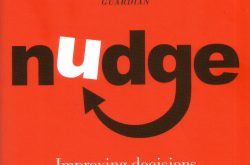Trump’s robber baron presidency [embedded content] In Trump’s world, the rich in the US obviously are not rich enough. So he has set out to lower the corporate tax rate to 20 percent and abolish the estate tax. Trump’s vision for the US is an unregulated and immensely unequal country. The working and middle classes are, of course, überjoyed … Advertisements
Read More »Why Krugman and Stiglitz are no real alternatives to mainstream economics
Why Krugman and Stiglitz are no real alternatives to mainstream economics Little in the discipline has changed in the wake of the crisis. Mirowski thinks that this is at least in part a result of the impotence of the loyal opposition — those economists such as Joseph Stiglitz or Paul Krugman who attempt to oppose the more viciously neoliberal articulations of economic theory from within the camp of neoclassical economics. Though Krugman and Stiglitz have...
Read More »Linearity — a dangerous assumption
Linearity — a dangerous assumption [embedded content] Advertisements
Read More »Den goda viljan
[embedded content] Advertisements
Read More »Getting the rabbit into the neoclassical hat
Getting the rabbit into the neoclassical hat In public, including in the training of economists, Neoclassical economics usually reads its models backwards. This gives the illusion that they show the behaviour of individual economic units determining sets of equilibrium values for markets and for whole economies. It hides the fact that these models have been constructed not by investigating the behaviour of individual agents, but rather by analysing the...
Read More »Volker Schlöndorff on Dustin Hoffman and Hollywood pigs
Volker Schlöndorff on Dustin Hoffman and Hollywood pigs Vielleicht werden die Ereignisse rund um Harvey Weinstein über Hollywood hinaus einmal als eine Zeitenwende im Verhältnis der Geschlechter gesehen werden. Doch es darf nicht sein, dass von dieser ‘Säuberungsaktion’ Menschen erfasst werden, die gar nicht in diese Kategorie gehören … Arme Dustin, ich wunsche dir, dass du, dein Ruf und deine tollen Filme nicht in den Abgrund hineingezogen werden. In den...
Read More »Getting the rabbit into the neoclassical hat
Getting the rabbit into the neoclassical hat In public, including in the training of economists, Neoclassical economics usually reads its models backwards. This gives the illusion that they show the behaviour of individual economic units determining sets of equilibrium values for markets and for whole economies. It hides the fact that these models have been constructed not by investigating the behaviour of individual agents, but rather by analysing the...
Read More »On Econs and Humans
On Econs and Humans Many years ago, Thaler was hosting dinner for some guests (other then-young economists) and put out a large bowl of cashew nuts to nibble on with the first bottle of wine. Within a few minutes it became clear that the bowl of nuts was going to be consumed in its entirety, and that the guests might lack sufficient appetite to enjoy all the food that was to follow. Leaping into action, Thaler grabbed the bowl of nuts, and (while sneaking a...
Read More »Die Mauer ist weg!
Die Mauer ist weg! In November 1989 the Berin Wall came down — and changed European history forever. [embedded content] div{float:left;margin-right:10px;} div.wpmrec2x div.u > div:nth-child(3n){margin-right:0px;} ]]> Advertisements
Read More »För en skola bortom elevers kontingenta fakticitet
För en skola bortom elevers kontingenta fakticitet Skolpedagogiska reformimpulser borde så småningom sluta att förlita sig på sjuttiotalets motiv, innebörder och semantik. Annars går det som när en orkester orubbligt fortsätter att spela de gamla välkända melodierna utan att bry sig om att publiken för länge sedan har lämnat salen. Det är på tiden att spela något nytt, man borde våga en ny början. Farväl till sjuttiotalet! Thomas Ziehe, ”Adjö till...
Read More » Lars P. Syll
Lars P. Syll





